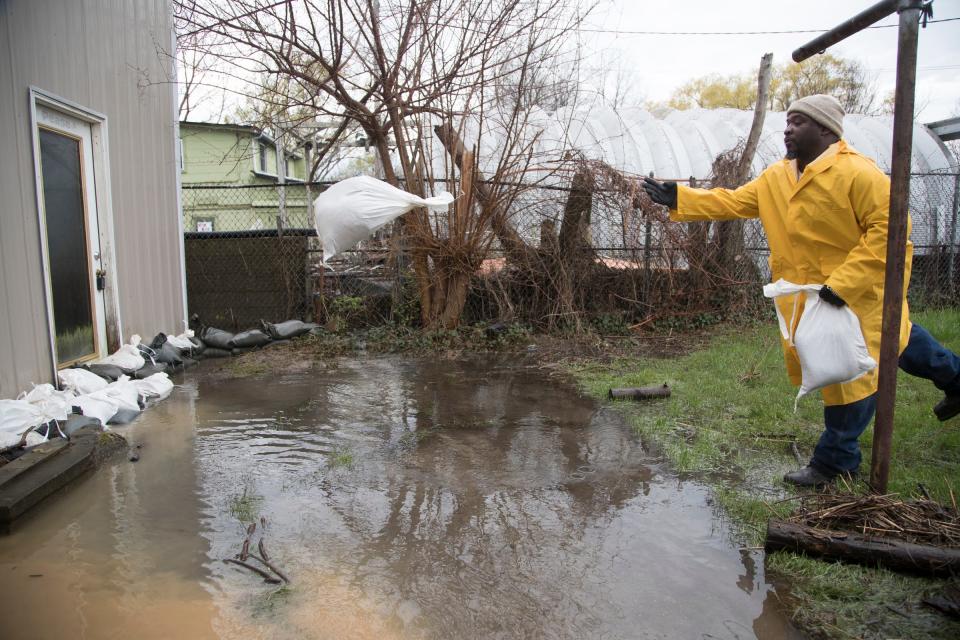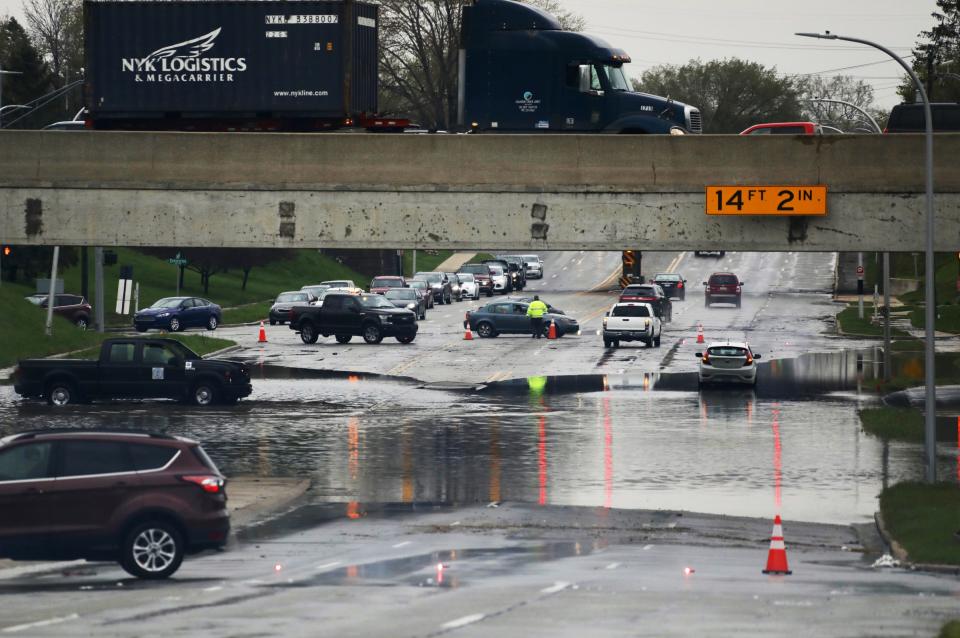Don't expect big tax breaks on losses from flooding, storms

High winds, flash flooding, wildfires, tornadoes, deadly storms and hurricanes keep us glued to the Weather Channel and leave many fearful of what's next. Most of us, frankly, aren't stopping to think: What will all the storm damage mean for my taxes?
But the next calamity could hit when you file your 2019 tax return if you're expecting a big break relating to a severe storm or natural disaster.
Under the Tax Cuts and Jobs Act, the rules relating to such deductions have changed dramatically as of Jan. 1, 2018.
What's important to know: You cannot claim a casualty or disaster loss on your federal income tax return unless you're in a federally declared and designated disaster area. Watch out for word from the Federal Emergency Management Agency. See www.fema.org/disasters.
"We really look to the FEMA declaration," said Amy Wang, CPA and senior manager on the tax policy and advocacy team for the American Institute of CPAs.
Preparing for tax season: You might get these 4 tax breaks back if Congress reinstates deductions
New, confusing W-4 form is coming: What to do now to get bigger tax refund

"It can be a challenge," Wang said.
Taxpayers in a "hard-hit" area for flooding or tornadoes, for example, would not be allowed a deduction for losses unless the area is declared a federal disaster area and their specific county is included, said Mark Steber, chief tax officer for Jackson Hewitt in Sarasota, Florida.
"Disasters and casualties, especially for taxes, are a hot and developing topic," Steber said. "Tax changes are continually being suggested by Congress. Currently, there are no new rules coming but that can change quickly."
So far this year through early June, FEMA has declared disasters in Louisiana, Oklahoma, Arkansas, Kansas, Montana, selected areas in the Navajo Nation, Missouri, California, Guam, Oregon, California, Kentucky, Tennessee, Alabama, Ohio, Iowa, Nebraska and elsewhere.
In the past 18 months, the Internal Revenue Service said it responded to disasters in 15 states and U.S. territories. The IRS offered tax relief and assistance to victims of hurricanes, typhoons, earthquakes, volcanoes, fires, tornadoes, severe storms, high winds and floods.
The IRS will let you know if a federal disaster has been declared. When there is a federally declared disaster, a special IRS toll-free hotline at 866-562-5227 is open so affected taxpayers can speak with specialists trained to handle disaster-related tax issues.
But remember, even though a county executive, mayor or governor may declare an event to be a disaster, it doesn’t mean it is a disaster for federal tax purposes, Steber said.
In Michigan, for example, FEMA has begun doing preliminary assessments in flooded areas of Wayne County after weather disasters in the spring. But the review does not guarantee a federal disaster declaration. On April 30 and May 1, heavy rainfall caused widespread flooding in parts of Wayne County, damaging infrastructure and private property. Michigan Gov. Gretchen Whitmer announced a state of emergency for Wayne County.

Wayne County Executive Warren Evans issued a similar declaration, noting that about 3,000 homes in the county including Detroit were damaged. Again, we'd have to wait for further word on whether a tax break will be part of the picture, too.
Here's what you need to know about claiming casualty losses on your 1040:
Take time to prepare for storms or flooding
Ask anyone who went through a significant flood, such as the historic flooding that took place nearly five years ago in metro Detroit communities along I-696, and they will tell you that they wish they had done more to protect family treasures and documents.
If you have old tax returns and other financial paperwork stored in a file cabinet in the basement, watch out because you could see soggy paperwork ahead. You might want to reconsider that strategy.
The IRS notes that taxpayers should try to make sure that bank statements, tax returns and insurance policies are stored securely in a waterproof container. Have a duplicate set of key documents stored safely away from the originals.
Many financial institutions provide statements and documents electronically, making retrieval of that information easier. Original paper documents can be scanned and downloaded to an external hard drive, flash drive, CD or DVD.
It's also a good idea to gather some photos and keep those in a safe place, too.
"Photographs can help prove the fair market value of property when filing insurance or casualty loss claims," the IRS stated in its disaster readiness tips. "Photos should be stored with backup files outside the area that may be affected by a disaster."
Talk to your insurance agent first
If you're hit by a bad storm, you may not take an income tax deduction for casualty and theft losses already covered by insurance. So you must file a claim with your insurance first before you'd consider taking any tax deductions relating to storm damage, Steber said.
Some roadblocks will stop any tax breaks
In order to claim a deduction, you must subtract 10% of your adjusted gross income from all the disasters claimed. Say, for example, your income is $100,000. Your losses would need to exceed $10,000 and then you'd only claim what's in excess of that amount. You also must subtract $100 from each disaster.
So if you had $30,000 in losses, you'd claim $19,900 in deductions. If you had $9,000 in losses, there would be no deduction.
You'd file IRS Form 4684 for "Casualties and Thefts" in order to claim a loss. You're going to need a FEMA disaster declaration number to enter on your Form 4684. Individuals are required to claim their casualty and theft losses as an itemized deduction on Schedule A.
Internal Revenue Service Publication 584 details the rules for Casualty, Disaster, and Theft Loss.
If you take the standard deduction, you won't be able to claim losses relating to major storms.
Headlines don't guarantee a tax break
Being hit by a big storm that gained some coverage on TV isn't quite enough for a tax break.
"It has to be in a federally declared disaster area," said Russell Schneidewind, lead tax researcher at the H&R Block Tax Institute.
"It's an important deduction because it helps people rebuild their lives."
But it's a deduction that no longer applies to many situations involving severe storms or other disasters.
If you lost your home in a big fire, for example, it won't trigger a tax break under the new rules that are part of the Trump tax reform unless that fire is part of a federally declared disaster, such as the wildfires in California.
The rules are so complicated – and could even be changing down the road – that your best bet is to work with a tax professional when you face damages from severe storms.
Contact Susan Tompor at 313-222-8876 or stompor@freepress.com. Follow her on Twitter @tompor. Read more on business and sign up for our business newsletter.
This article originally appeared on Detroit Free Press: Don't expect big tax breaks on losses from flooding, storms

